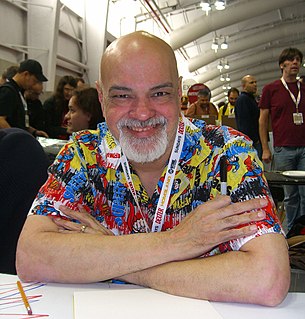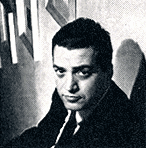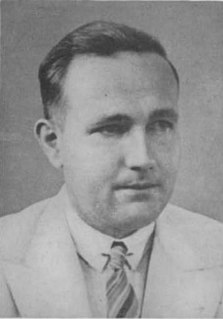A Quote by Richard Grossman
I love grand scale. One of the things that everybody mentions is that my novels are beautiful objects in the sense that the elements of the actual book are being extruded and re-contextualized.
Related Quotes
The things that we preceive as beautiful may be different, but the actual characteristics we ascribe to beautiful objects are similar. Think about it. When something strikes us as beautiful, it displays more presence and sharpness of shape and vividness of color, doesn't it? It stands out. It shines. It seems almost iridescent compared to the dullness of other objects less attractive.
Those who find ugly meanings in beautiful things are corrupt without being charming. This is a fault. Those who find beautiful meanings in beautiful things are the cultivated. For these there is hope. They are the elect to whom beautiful things mean only Beauty. There is no such thing as a moral or an immoral book. Books are well written, or badly written. That is all.
I am preoccupied with the possibility of creating art which functions in a public situation without compromising its private character of being antiheroic, antimonumental, antiabstract, and antigeneral. The paradox is intensified by the use on a grand scale of small-scale subjects known from intimate situations--an approach which tends in turn to reduce the scale of the real landscape to imaginary dimensions.
I subject my sentences and the words to a kind of Grand Inquisition. I'm trying always to leave out what I think is extraneous. And to find what I think is the most wonderful language to make a beautiful sentence. Not beautiful in the sense of "oh it's flowy" but in the sense that it really does what it's supposed to do, it what I want it to say.
Scale is a mental - you can say that a lounger has scale, a building has scale, or an object has scale, or a page, or whatever if it's just right. A scale is a relationship to the object and the space surrounding it. And that dialogue could be music, or it could be just noise. And that is why it is so important, the sense of scale.
I knew I wanted the parties in 'The Queen of the Night' to be convincing, beautiful, and also dramatic: situations where significant things happened on a scale that was both grand and intimate. There were several texts that helped me think about how to do this, and one of the most important ones was Charlotte Bronte's novel 'Villette.'
Many painters had a clear idea of what fractals are. Take a French classic painter named Poussin. Now, he painted beautiful landscapes, completely artificial ones, imaginary landscapes. And how did he choose them? Well, he had the balance of trees, of lawns, of houses in the distance. He had a balance of small objects, big objects, big trees in front and his balance of objects at every scale is what gives to Poussin a special feeling.
Experiments in geology are far more difficult than in physics and chemistry because of the greater size of the objects, commonly outside our laboratories, up to the earth itself, and also because of the fact that the geologic time scale exceeds the human time scale by a million and more times. This difference in time allows only direct observations of the actual geologic processes, the mind having to imagine what could possibly have happened in the past.


































